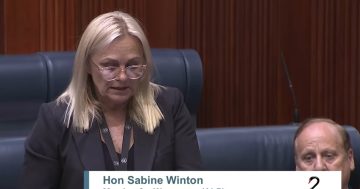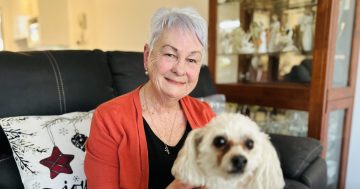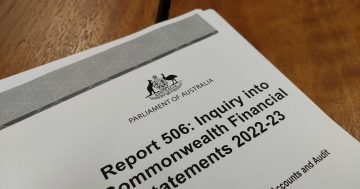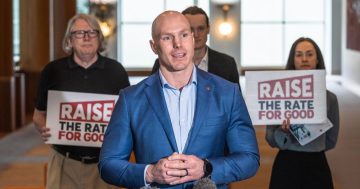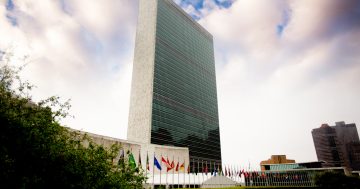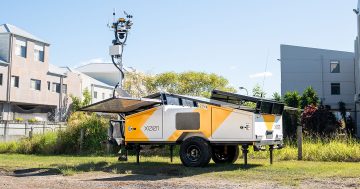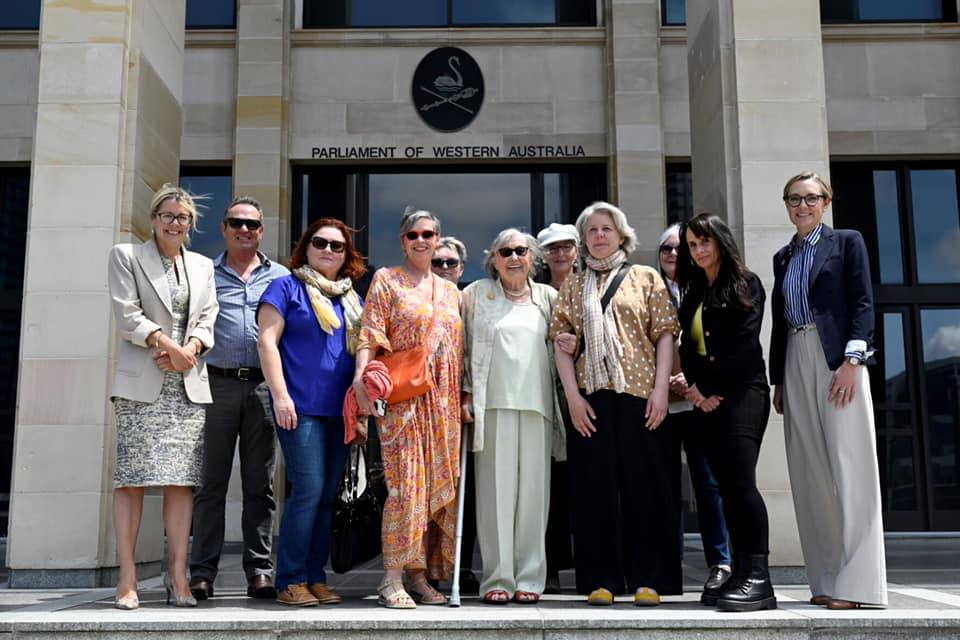
A driving force behind the inquiry was the Association Representing Mothers Separated from their Children by Adoption Inc (ARMS), a Western Australian-based support group for women who have had a child removed by adoption. Photo: ARMS.
An inquiry into the systemic forced adoption practices used by the Western Australian government last century has recommended compensation for survivors.
‘Forced adoption’ is an umbrella term referring to actions that separated babies and unmarried mothers against their wills for the purposes of adoption. In WA, this era intersected with policies that led to the Stolen Generations, and also involved ‘Forgotten Australians’ who were raised in state care, private institutions or both.
The Standing Committee on Environment and Public Affairs handed down its inquiry report on 22 August, after working through more than 5850 pages of evidence and 38 in-person hearings.
Chaired by Peter Foster MLC, it found the Child Welfare Department, Department for Community Welfare (now Department of Communities), public hospitals and non-government institutions were responsible for these potentially unlawful policies and practices.
“Under forced adoption practices and policies in WA last century, unmarried women were channelled into an adoption process, often early in their pregnancies, and sometimes without their knowledge,” writes Mr Foster. “Many stayed in private institutions in the lead up to their births, where they variously worked unpaid, were psychologically abused, and were kept isolated.
“Pregnant women, fathers to be and their parents were pressured into agreeing to adoption, and women were subjected to coercive messaging that they were not fit to parent and that their children would be better off brought up by others.
“Some were told that if they loved their child, they would give it up. The mothers in evidence wanted to keep and raise their children.”
WA Parliament was the first in Australia to apologise for past forced adoption in 2010. However the report claims “little action flowed” from it or the recommendations that came out of the Federal Senate inquiry in 2012.
This inquiry began in February 2022, after being successfully introduced as a petition to the Legislative Council in the November prior – sponsored by adoptee advocate Jennifer McRae and bearing 318 signatures.
While the committee was only able to confirm 80 clear accounts of forced adoption, three quarters of the 165 inquiry contributors had lived experience.
The report claims they suffered through “coercive, deceptive, flawed or unlawful” processes by which consent was obtained for adoptions.
“Some mothers were unfit to sign consent, not informed, and/or were threatened or otherwise coerced into signing their consent,” read the report. “Many mothers were misled as to where their children were at different points and thought they had been placed with prospective adoptive parents when that was not the case.
“Some children were placed for adoption prior to any consent being signed by their parent/s, and most prior to orders of adoption being made. Adoptive parents were not vetted, barely checked, or inadequately assessed.”
A major recommendation of the committee is for a redress scheme to be established for those directly affected by past forced adoption in WA.
This would involve monetary payment, legal advice, counselling and psychological support, along with a direct personal response from involved institutions and organisations like Ngala, the Salvation Army and the Sisters of Mercy. However, another recommendation is that support services are not provided by the Department of Communities, due to its role in past forced adoption.
The scheme would include adopted people and some fathers, a move the Victorian Government did not follow in establishing the country’s first such initiative (2019), where only mothers are eligible for compensation.
Along with involving more people with lived experience in discussions around the issue, the committee recommended greater transparency and clarity on present-day adoption practices and legislation.
“Access to records often occurs under the processes of the Freedom of Information Act 1992 (WA), and the Adoption Act 1994 (WA),” read the report. “Neither of these processes meets the needs of those affected by past forced adoption.”
To meet those needs, the committee asks for a new scheme to access information and records relating to adoption. It also called attention to the lack of WA counsellors adequately trained and skilled to appropriately assist forced adoption clients.
“Cost is a barrier, as is availability and distance for regional residents,” read the report. “It is vital that people are empowered to choose and change practitioners to ensure they are getting the help most appropriate for them.”


